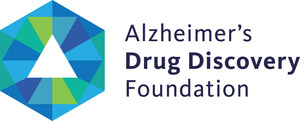
Innovative science convened by the Alzheimer's Drug Discovery Foundation is paving the way for a new, revolutionary era of precision care
NEW YORK, Nov. 13, 2025 /PRNewswire/ -- The Journal of Prevention of Alzheimer's Disease (JPAD) today published a special edition in collaboration with the Alzheimer's Drug Discovery Foundation (ADDF), titled, "Combination Therapies for Alzheimer's Disease: Charting the Future of New Treatments and Prevention." This landmark issue builds upon the rapidly growing evidence that combination therapies will be essential to effectively treating Alzheimer's and provides a roadmap for advancing this critical research.
"This JPAD issue arrives at a pivotal moment for the field," said Howard Fillit, MD, Co-Founder and Chief Science Officer at the ADDF. "The drug development landscape is changing, with multiple anti-amyloid therapies available and more than 70% of the Alzheimer's pipeline now aimed at novel targets informed by the disease's pathobiology. Alzheimer's is a complex condition that will ultimately require a precision approach, and it is crucial that we offer guidance to chart the path forward for a new generation of biomarker-powered clinical trials to evaluate drugs in combination."
Combination therapies are already the gold standard in cancer care. The new JPAD edition provides a blueprint for expanding this approach to Alzheimer's disease and designing the next wave of combination trials – whether that be combining novel drugs with anti-amyloids, multiple novel drugs, or drugs with lifestyle interventions – to accelerate progress toward effective, personalized treatments.
"With Alzheimer's science advancing at an unprecedented speed, this JPAD issue is especially timely," said Bruno Vellas, MD, PhD, President and Founder of IHU HealthAge in Toulouse. "The field is at a turning point – we now have the tools and the science to design the combination trials that will define the next era of Alzheimer's treatment. This issue provides the framework to do just that."
Key highlights of the JPAD special issue include:
- Drug repurposing opportunities: Existing therapies from other disease areas, such as metabolic disease and schizophrenia, are being evaluated for use in Alzheimer's, opening new avenues for treatment.
- Integration of lifestyle interventions: Growing evidence from studies such as the landmark FINGER trial, led by Goodes Prize recipient Dr. Miia Kivipelto, demonstrates how combining drugs with diet, exercise, and other lifestyle changes can further prevent or slow disease progression.
- Emerging role of artificial intelligence: AI is increasingly being leveraged to identify promising drug combinations, optimize trial design, and accelerate discovery.
- Biomarker innovation: Developing and validating new biomarkers is essential to enable precision medicine and ensure patients receive the therapies most likely to benefit them as early as possible.
"A critical next step is to further build out our biomarker guidance, as these tools will be vital to designing and running rigorous combination trials," said Suzanne Schindler, MD, PhD, Associate Professor of Neurology at the Washington University School of Medicine in St. Louis. "We now have multiple blood tests approved by the FDA to aid in Alzheimer's diagnosis, and this is only the beginning. Continuing to develop a diverse toolkit of biomarkers reflecting different pathologies and advancing digital technologies will be key to opening the door for precision care."
There are already 20 ongoing trials evaluating combination therapy approaches in today's drug development pipeline, comprising 11% of all current trials. And many promising candidates remain on the horizon, including GLP-1 drugs like semaglutide.
"We have entered a new era in Alzheimer's research, one that is embracing the complexity of the disease to build the foundations for personalized prevention and treatment," said Aaron Burstein, PharmD, Head of Search and Evaluation at the ADDF. "Combination therapy has already proven successful in other complex diseases, and this issue provides critical considerations for applying that strategy to Alzheimer's – offering hope for more effective treatments and better outcomes for patients worldwide."
About The Alzheimer's Drug Discovery Foundation (ADDF)
Founded in 1998 by Leonard A. and Ronald S. Lauder, the Alzheimer's Drug Discovery Foundation is dedicated to rapidly accelerating the development of drugs to prevent, treat, and cure Alzheimer's disease. The ADDF is the only public charity solely focused on funding the development of drugs for Alzheimer's, employing a venture philanthropy model to support research in academia and the biotech industry. The ADDF's leadership and contributions to the field have played a pivotal role in bringing the first Alzheimer's PET scan (Amyvid®) and blood test (PrecivityAD®) to market, as well as fueling the current robust and diverse drug pipeline. Through the generosity of its donors, the ADDF has awarded more than $370 million to fund 765 Alzheimer's drug development, biomarker, and prevention programs in 21 countries. To learn more, please visit: http://www.alzdiscovery.org/.
SOURCE Alzheimer's Drug Discovery Foundation







Share this article